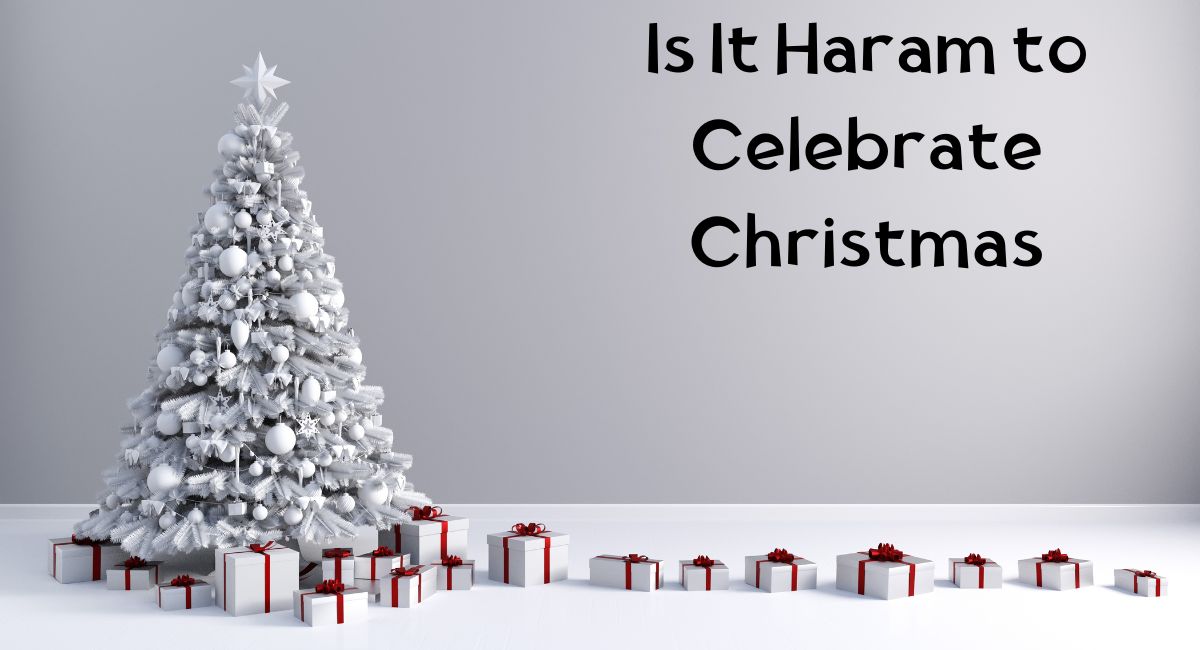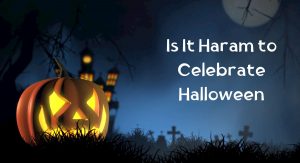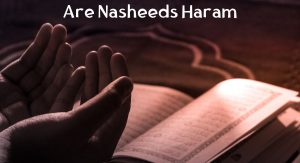The question of whether it is permissible (halal) or forbidden (haram) for Muslims to celebrate Christmas is a topic of ongoing debate and discussion within the Islamic community.
Christmas, widely recognized as a Christian holiday commemorating the birth of Jesus Christ, has evolved into a global celebration with various cultural and secular elements. For Muslims, navigating the issue of Christmas celebrations involves a complex interplay of religious principles, cultural contexts, and individual beliefs.
In this article, we will explore the different perspectives and considerations surrounding this matter, shedding light on the diverse views within the Muslim community and the factors that influence their stance on celebrating Christmas.
Is It Haram to Celebrate Christmas
The question of whether it is permissible in Islam to celebrate Christmas involves complex theological considerations. According to Islamic teachings, participating in the celebrations of Christmas is generally viewed as haram (prohibited). This stance is rooted in several Islamic principles and teachings from the Quran, Hadiths, and scholarly interpretations. Here’s an in-depth look at the topic using Islamic texts and scholar opinions:
Quranic Verses
- Shirk and Falsehood: The Quran does not specifically mention Christmas, but it contains verses about shirk (associating partners with Allah) and idolatry, which are applicable in this context. For instance, Quran 25:72 speaks against “testifying to falsehood,” which Islamic scholars like Ibn Taymiyyah interpret as a warning against participating in non-Islamic festivals like Christmas. The verse, “… So shun the abomination of idols, and avoid false statement…” (Quran 22:30), is also relevant in highlighting the Islamic stance against practices perceived as idolatrous or rooted in falsehood.
- Exclusivity of Festivals: The Quran emphasizes that different nations have their unique practices. Verses like “For every nation there is a direction to which they face (in their prayers)…” (Quran 2:148) and “… To each among you We have prescribed a law and a clear way…” (Quran 5:48) are interpreted to imply that each religious community has its own festivals, and therefore Muslims should not participate in non-Islamic festivals like Christmas.
Hadiths
- Prophetic Teachings: According to a hadith narrated by Anas Ibn Maalik, when the Prophet Muhammad was asked about two days of play and relaxation in Medina, he responded that Allah had replaced them with Eid al-Fitr and Eid al-Adha. This is taken as evidence that the Prophet forbade celebrating non-Islamic festivals and emphasized the distinctiveness of Islamic celebrations.
- Imitating Non-Muslims: Another hadith states, “Whoever imitates a people is one of them” (Abu Daawood). This is often cited to discourage Muslims from imitating non-Muslim customs and practices, including celebrating Christmas.
Scholarly Interpretations
- Celebration as an Act of Polytheism: Scholars argue that celebrating Christmas is an act of polytheism since it involves recognizing Jesus Christ as more than a prophet, which contradicts the Islamic view of Jesus as a human prophet.
- Prohibition of Greeting on Non-Muslim Festivals: Ibn Al-Qayyim and other scholars have stated that greeting non-Muslims on their religious holidays is haram (forbidden), as it may imply acceptance or approval of their rituals of disbelief. They argue that this contradicts Islamic teachings, which do not approve of disbelief (Quran 39:7).
- Avoiding Participation in Non-Islamic Festivals: Islamic scholars and jurists, including ‘Umar Ibn Al-Khattaab and his companions, have established that Muslims should not participate in or openly celebrate non-Islamic festivals. This is seen as a form of corruption and sin.
In conclusion, from an Islamic perspective, celebrating Christmas is generally seen as haram due to its association with Christian beliefs that contradict Islamic monotheism, its pagan origins, and the Prophet Muhammad’s teachings about maintaining the distinctiveness of Islamic practices. While there’s a recognition of Jesus in Islam, celebrating his birth in the manner of Christmas conflicts with the Islamic emphasis on monotheism and the avoidance of shirk.
Is It Haram to Give Gifts on Christmas
The permissibility of giving gifts on Christmas among Muslims is a subject of debate among scholars. Some scholars view it as permissible, while others consider it makruh (disliked) or even haram (prohibited).
Those who view it as permissible argue that the act of gift-giving is encouraged in Islam, as it promotes kindness, generosity, and strengthening relationships. They emphasize that the intention behind the gift is more important than the occasion on which it is given. As long as the intention is to show kindness and goodwill, rather than to celebrate Christmas or endorse its religious beliefs, then giving a gift is considered permissible.
Those who view it as makruh or haram argue that giving gifts on Christmas can be seen as an imitation of non-Muslim practices and a form of religious innovation. They emphasize that Muslims should focus on celebrating their own holidays, such as Eid al-Fitr and Eid al-Adha, and avoid participating in the celebrations of other religions.
Ultimately, the decision of whether or not to give gifts on Christmas is a personal one that should be made based on one’s own understanding of Islam. It is important to consider the potential implications of one’s actions and to make a decision that is in accordance with one’s conscience.
Here are some additional factors to consider when making this decision:
- The nature of the gift: If the gift is something that is directly related to Christmas, such as a religious symbol or decoration, then it is more likely to be considered haram. However, if the gift is something that is not religiously specific, such as a toy or a piece of clothing, then it is less likely to be considered haram.
- The context in which the gift is given: If the gift is given in a way that suggests that the giver is endorsing Christmas or its religious beliefs, then it is more likely to be considered haram. However, if the gift is given simply as a gesture of kindness and goodwill, then it is less likely to be considered haram.
- The relationship between the giver and the receiver: If the giver and receiver are close friends or family members, then the gift is more likely to be seen as a gesture of personal affection rather than an endorsement of Christmas. However, if the giver and receiver are not well acquainted, then the gift is more likely to be seen as an attempt to proselytize or promote Christianity.
It is always advisable to consult with a trusted Islamic scholar if you have any doubts about the permissibility of giving gifts on Christmas.
Islamic View on Eating Christmas Food
The Islamic view on eating Christmas food is a complex issue with a range of opinions among scholars and individuals. Some Muslims believe that it is permissible to eat food that has been prepared for a Christian celebration, such as Christmas, as long as it is halal (permissible) according to Islamic dietary laws.
This means that the food should not contain pork, alcohol, or any other prohibited substances. Other Muslims believe that it is not permissible to eat food that is prepared for a non-Muslim celebration, even if it is halal, as it could be seen as participating in a religious practice that is not Islamic.
Halal Dietary Laws
The main consideration for Muslims when determining whether or not to eat Christmas food is whether it adheres to halal dietary laws. These laws are outlined in the Quran and Sunnah, the holy books of Islam. Some of the key points of halal dietary law include:
- No pork or pork products.
- No animals that have been slaughtered in a non-halal way.
- No blood or blood products.
- No animals that have died naturally or from disease.
- No animals that have been strangled, beaten, or fell from a high place.
- No animals that have been sacrificed to idols.
- No alcohol or intoxicants.
Participating in Non-Muslim Celebrations
A more nuanced issue is whether or not Muslims should eat food that is prepared for a non-Muslim celebration, even if it is halal. Some Muslims believe that it is permissible to eat such food, while others believe that it is not. Those who believe that it is permissible often cite the following reasons:
- The Quran and Sunnah do not explicitly prohibit eating food that is prepared for a non-Muslim celebration.
- It is polite to accept food that is offered by others, regardless of their religion.
- Eating food is not the same as participating in a religious ceremony.
Those who believe that it is not permissible to eat such food often cite the following reasons:
- Eating food that is prepared for a non-Muslim celebration could be seen as participating in a religious practice that is not Islamic.
- It could also be seen as accepting and approving of the non-Muslim celebration.
- It could lead to social intermingling that could have negative consequences for the Muslim community.
Muslim scholars’ opinions
- Dr. Yasir Qadhi: “As a general rule, it is permissible for Muslims to eat food prepared by non-Muslims, even if the food is prepared for a religious festival like Christmas. However, if the food contains pork, alcohol, or other forbidden substances, then it is not permissible to eat it. Additionally, if the food is prepared in a way that is considered to be religiously significant to non-Muslims, then it is more cautious to abstain from eating it.”
- Dr. Shabir Ally: “The question of whether or not it is permissible for Muslims to eat Christmas food is a complex one that there is no single, definitive answer to. The specific ruling may vary depending on the individual’s interpretation of Islamic law. However, in general, it is permissible for Muslims to eat food prepared by non-Muslims, as long as the food is halal and the preparation process does not violate Islamic principles.”
- Mufti Muhammad Taqi Usmani: “It is not permissible for Muslims to eat food that is prepared in a way that is considered to be religiously significant to non-Muslims. This includes food that is prepared for Christmas and other religious festivals. However, it is permissible for Muslims to eat food prepared by non-Muslims, as long as the food is halal and the preparation process does not violate Islamic principles.”
All in all, the Islamic view on eating Christmas food is a complex matter with no single, definitive answer. There are a variety of opinions on this issue among Muslim scholars, and the specific ruling may vary depending on the individual’s interpretation of Islamic law. Ultimately, the decision of whether or not to eat Christmas food is a personal one for each individual Muslim.
Is It Haram to Have a Christmas Tree
The majority of Islamic scholars consider it haram, or prohibited, for Muslims to have a Christmas tree. This is because the Christmas tree is a symbol of Christianity, and Islam prohibits the imitation of other religions’ practices.
There are two main reasons why Muslims believe it is haram to have a Christmas tree:
- The tree is a symbol of idolatry. In pagan religions, trees were often worshipped as gods or goddesses. The Christmas tree is a continuation of this tradition, as it is seen as a representation of the divine. Muslims believe that only God is worthy of worship, and that it is haram to worship anything else.
- Having a Christmas tree could be seen as an act of taqiyyah, or religious dissimulation. Taqiyyah is the practice of lying about one’s faith in order to avoid persecution. Muslims believe that it is haram to practice taqiyyah, as it is a form of deception.
However, there are a few different opinions on this matter. Some Muslims believe that it is permissible to have a Christmas tree as long as it is not used to celebrate Christmas. They argue that the tree itself is not a religious symbol, and that it can be seen as a decorative object. Others believe that it is permissible to have a Christmas tree as long as it is not decorated in a way that is explicitly Christian.
Ultimately, the decision of whether or not to have a Christmas tree is a personal one that each Muslim must make for themselves. However, it is important to be aware of the different opinions on this matter and to make a decision that is in line with one’s own understanding of Islamic law.
Is Saying Merry Christmas Haram
Some scholars argue that saying “Merry Christmas” is haram because it is a form of shirk (associating others with God), as it implies that Jesus Christ is the son of God. Others argue that it is permissible to say “Merry Christmas” as a way of greeting Christians and showing them goodwill, as long as it is not done with the intention of participating in their religious practices.
Ultimately, the decision of whether or not to say “Merry Christmas” is a personal one that should be made on a case-by-case basis. Muslims should carefully consider their own beliefs and the potential implications of their actions before making a decision.
Here are some additional factors that Muslims may want to consider when making their decision:
- The relationship with the person they are greeting. If the person is a close friend or family member, they may feel more comfortable saying “Merry Christmas” as a way of showing them love and support.
- The context in which the greeting is being said. If the greeting is being said in a purely social setting, it may be less problematic than if it is being said in a religious context.
- The individual’s own level of religious observance. Some Muslims may feel more comfortable saying “Merry Christmas” than others, depending on their own level of religious practice.
Is It Haram to Wear Christmas Clothes
The Indonesian Ulama Council (MUI), a group of Muslim scholars in Indonesia, issued a fatwa in 2016 stating that it is haram for Muslims to wear Christmas clothes. The fatwa cited several reasons for this ruling, including that it could lead to Muslims imitating the disbelievers, that it could be seen as a form of shirk (associating partners with God), and that it could be seen as a form of celebrating Christmas.
However, not all scholars agree with the MUI’s fatwa. Some argue that the fatwa is too restrictive and that it is permissible for Muslims to wear Christmas clothes as long as they do not intend to celebrate Christmas. Others argue that the fatwa is based on a misunderstanding of the Islamic concept of imitation (taqlid).
Ultimately, the question of whether or not it is haram to wear Christmas clothes is a matter of personal conscience. Muslims should consider the opinions of scholars and make their own decision based on what they believe is most correct.
Is It Haram to Decorate for Christmas
There is no consensus among scholars on this issue, and there are valid arguments to be made on both sides.
Some scholars believe that decorating for Christmas is haram because it is a form of imitating non-Muslims, which is prohibited in Islam. They argue that putting up a Christmas tree, for example, is a way of celebrating a Christian holiday and that it can lead to Muslims being influenced by Christian beliefs.
Other scholars believe that decorating for Christmas is permissible if it is done for purely secular reasons, such as enjoying the festive atmosphere or spending time with family and friends. They argue that there is nothing inherently wrong with decorating a house, and that doing so does not necessarily mean that one is endorsing Christian beliefs.
Ultimately, it is up to each individual Muslim to decide whether or not they believe it is haram to decorate for Christmas. There is no right or wrong answer, and it is important to weigh the different arguments carefully before making a decision.
Here are some additional factors to consider when making your decision:
- Your own level of religiosity
- The context in which you are decorating (e.g., at home, at work, at a school)
- The reactions of your family and friends
Is Santa Claus Haram
The concept of Santa Claus is generally considered haram (forbidden) in Islam. This is because Santa Claus is closely associated with the Christian celebration of Christmas, which is a religious festival not recognized by Islam. Additionally, Muslims are prohibited from imitating the customs and practices of non-Muslims, as this can lead to confusion and compromise one’s faith.
In particular, some of the reasons why Santa Claus is considered haram include:
- Santa Claus is associated with the Christian figure of Saint Nicholas, who is a revered saint in Christianity. Muslims do not believe in the concept of saints or the veneration of any human being other than prophets and messengers.
- The Santa Claus tradition often involves the exchange of gifts, which can be seen as a form of idolatry, as it gives undue importance to material possessions over spiritual values. In Islam, wealth is seen as a means to an end, not an end in itself.
- The Santa Claus portrayal often involves magical elements, such as the ability to travel the world in one night and deliver gifts to children. Muslims believe that magic is a form of deception and trickery that is forbidden in Islam.
- The Santa Claus tradition can also lead to the misrepresentation of Islamic beliefs and practices, as it may be seen as a replacement for the true celebration of Eid al-Fitr and Eid al-Adha. These two Eids are the two most important religious festivals in Islam, and they are celebrated in accordance with the teachings of the Quran and Prophet Muhammad.
While the Santa Claus tradition may be harmless for children, Muslims should be mindful of its origins and implications and avoid engaging in practices that could be considered haram.
For more insights into Islamic viewpoints on various celebrations, explore these related articles.
Is It Haram to Celebrate Birthdays: Discover the Islamic perspective on celebrating birthdays. This article explores whether marking personal milestones in this manner aligns with Islamic teachings.
Is It Haram to Celebrate New Years: Delve into the question of whether celebrating the Gregorian New Year goes against Islamic principles. This article discusses the varying viewpoints on this practice within the Muslim community.
Frequently Asked Questions
1. What quran say about christmas?
The Quran does not explicitly mention Christmas or the birth of Jesus Christ. However, it does narrate the story of Jesus’ birth and his mother Mary, and it affirms Jesus’ status as a prophet of God. The Quran states that Jesus was born to a virgin named Mary, and that his birth was a miraculous event. It also states that Jesus was a righteous man who performed many miracles, and that he is one of the most important messengers of God. The Quran also mentions that Jesus was crucified, but that he was not killed and instead ascended to heaven.
2. Which countries do not celebrate christmas?
Countries that do not widely celebrate Christmas include many in the Middle East, North Africa, and parts of Asia. These regions predominantly follow religions other than Christianity, such as Islam, Hinduism, or Buddhism. Countries like Saudi Arabia, Afghanistan, Iran, Thailand, Turkey, and Morocco are examples where Christmas is not a public holiday and is generally not part of the cultural or religious traditions. The attached image provides a visual representation of countries around the world where Christmas is not commonly celebrated.
3. Is christmas offensive to muslims?
The perception of Christmas among Muslims varies. While some may find certain aspects of Christmas celebrations, like the deification of Jesus Christ, inconsistent with Islamic beliefs, others may not find the holiday itself offensive. Islam recognizes Jesus as a prophet, but not as the son of God, which is a central belief in Christianity and a significant aspect of Christmas. However, this doesn’t necessarily translate to offense; rather, it’s a matter of religious belief and practice. Muslims are advised to respect the beliefs of others while adhering to their own faith’s teachings.
4. Is celebrating christmas a sin?
From a religious perspective, whether celebrating Christmas is considered a sin depends on the beliefs and teachings of the individual’s faith. In Christianity, celebrating Christmas is a significant religious observance and not considered a sin. In Islam, however, participating in the celebrations of Christmas is seen as haram (prohibited), as it may involve acts that are contrary to Islamic monotheism. This viewpoint is based on the Quranic teachings against idolatry and the Hadiths, which advise Muslims against adopting the festivals and customs of other religions.








